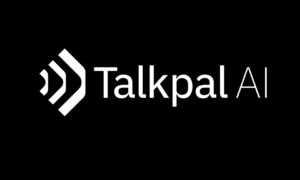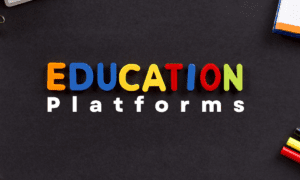By Artem Volokitin, Founder and CEO of Art for Introvert platform
The current state of the educational technology industry reflects significant growth over the past decade, particularly accelerated by the COVID-19 pandemic. Schools and universities have been compelled to adapt to remote and hybrid learning models, hastening the adoption of educational technologies. Projections indicate that by 2025, the global EdTech market will reach $341 billion.
Collaboration serves as a catalyst for growth, benefiting both individuals and companies, and the EdTech industry is no exception. Real success stories underscore the role of partnerships in bringing EdTech platforms to new heights. As the sector continues to expand, collaboration remains fundamental to success, enabling platforms to navigate challenges and offer effective solutions.
How EdTech Companies Find Experts
Online schools and EdTech platforms typically employ various channels to find speakers, including personal connections, traditional job search platforms, and social media.
When it comes to selecting experts, they prioritise factors beyond just social media popularity. Instead, they focus on alignment with the field, expertise, and professionalism. This means that having a large number of followers on social media is not the sole criterion for being selected as a speaker or an expert.
For professionals seeking collaboration opportunities, it’s essential to clearly position themselves within their specific domain or expertise area. This entails defining their expertise in a particular field or niche and showcasing it effectively. By doing so, they increase their chances of being chosen as speakers by online schools, as these institutions value individuals who possess deep understanding and specialisation in their respective areas. Thus, professionals should emphasise their unique insights, experiences, and contributions to their field, rather than solely relying on follower count or general accolades.
It is more or less obvious why companies search for field professionals, but why would professionals seek to cooperate with online schools and EdTech companies, especially when they’re already experts in their field? Isn’t it more lucrative to develop their own products instead of teaching within online school programs?
There are several reasons why it is beneficial for experts:
- Learning opportunities: Working with an online school offers professionals a chance to gain new experiences, such as learning about educational online product methodologies and adopting new techniques.
- Reputation enhancement: Being associated with an online university adds credibility to a professional’s reputation, indicating that their insights are valued and trusted by colleagues.
- Access to new audiences: Collaborating with online schools helps professionals strengthen their position as experts and expand their digital presence through social media and school websites.
As you can see it is a win-win cooperation that brings tangible benefits for both parties and helps businesses and individuals to evolve at the same time contributing to bringing education to the masses. Now, let us take a look at real-world examples where collaboration between EdTech companies and professionals led to commercial success and also made the world a better place with more accessible education.
Khan Academy
Khan Academy, founded by Sal Khan in 2006, provides free online educational resources including video lessons and practice exercises covering various subjects. Generally speaking, it aims to supplement traditional education methods.
In response to criticism about Sal Khan’s lack of formal pedagogical qualifications and occasional inaccuracies in video content, Khan Academy has expanded its faculty and formed a network of over 200 content experts. They have also corrected errors in videos and emphasised their role as a supplementary resource to enhance classroom learning.
DuoLingo
Duolingo is a well-known language-learning app. It has a broader mission beyond its platform. It aims to advance pedagogy, testing, and promote multilingualism while aligning with international standards. Similarly, the Chartered Institute of Linguists (CIOL) shares a commitment to fostering language learning, promoting clear standards, and enhancing the professional skills of linguists.
Recognising their shared objectives, Duolingo and CIOL have formed a formal partnership to collaborate on advancing these goals. Duolingo offers a wide range of languages for beginners and intermediate learners, while CIOL conducts tests in over 30 languages annually. This partnership aims to further promote language diversity, advance language learning standards, and enhance the professional skills and awareness of linguists globally.
EdTech Alliances
Another trend in collaboration is forming alliances in the EdTech sector. Companies’ professionals initiate collaboration with each other to share experience and provide more efficient educational programs. Thus, Netology, Skillfactory, Skillbox, and six Russian universities announced the establishment of the Commonwealth of Online Higher Education (SOVO). This marks the first alliance between EdTech companies and universities, though other associations like RACIO, ASOO, and the “RAEK/EdTech” cluster also exist in the market. These alliances are in their early stages, focusing on launching initial events, conducting research, and discussing online education standards at the governmental level.
As we have mentioned, businesses are joining forces to enhance the quality of educational services, exchange experiences and best practices, conduct joint market research, initiate collaborations, and engage in dialogue with regulators. As the EdTech market matures and expands, forming such alliances becomes a logical step. In this format, companies find it easier to advocate for their interests and find ways to improve the quality of educational products by uniting not only with each other but also with universities, large businesses, and governmental institutions.
EdTech and European Teaching Professionals
Digital transformation is perceived as one of the most important trends for the future of education, as outlined in the European Commission’s Digital Education Action Plan 2021-2027. EdTech gradually becomes an essential partner for educational institutions to meet their digital objectives. The industry provides technological tools and resources to enhance access to educational content and promote better understanding and assimilation of new information.
What is more, EdTech companies offer innovative solutions to empower teachers with additional information and audiovisual resources while monitoring student progress. Those employing Artificial Intelligence personalise students’ education based on their abilities, motivations, and needs, fostering the development of critical digital skills for future job roles. Thus, for example, ODILO, a Spanish EdTech company, recently presented its Unlimited Learning Ecosystem, featuring leading voices discussing the benefits of implementing AI, machine learning, virtual and augmented reality, and smart devices in traditional education.
As can be seen, thanks to EdTech teachers acquire new advanced tools to facilitate their daily work. In their turn EdTech platforms also get the maximum of this collaboration, improving the quality of their products, reaching new audiences, and receiving highly-qualified specialists as consultants. Close collaboration between traditional educational institutions and EdTech companies is utterly important for driving meaningful innovation in education. Using each other’s strengths and expertise, they can create transformative learning experiences that prepare students for solving real-world problems.
Wrapping Up
Partnering and collaboration offer more than just developing products. It also includes marketing and distribution. By teaming up with industry influencers, platforms can expand their reach and credibility, tapping into new markets and customer segments. Moreover, strategic partnerships can ease access to funding, expertise, and resources, enabling platforms to scale rapidly and sustainably.
It should be stressed that EdTech companies’ success depends not only on technological innovations but also on strategic collaboration with professionals across disciplines and as the EdTech sector continues to evolve, the importance of establishing meaningful partnerships will only grow. Does your company work in collaboration with traditional educational institutions and field professionals? Do you find this collaboration mutually beneficial? Feel free to share your thoughts and experiences in the comments.



































